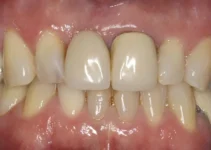Experiencing restless sleep can have a profound impact on your daily functioning and overall health. This condition often involves difficulty falling asleep, frequent awakenings during the night, or feeling unrefreshed upon waking up in the morning. Factors like stress, anxiety, medical conditions, or poor sleep habits can all contribute to restless sleep. Understanding the underlying causes and exploring effective management strategies can significantly improve your sleep quality and enhance your life quality.
Understanding Restless Sleep
Restless sleep is a common issue experienced by millions of individuals around the world. It is characterized by frequent awakenings during the night, difficulty falling asleep, and an overall feeling of not being rested despite spending enough time in bed. Understanding the fundamentals of restless sleep can help in identifying and addressing the root causes effectively. Among the most significant factors contributing to restless sleep are stress, anxiety, and lifestyle choices. Stress and anxiety can lead to a heightened state of arousal, making it difficult for the body to relax and transition into deeper stages of sleep.
Another critical aspect to consider is the influence of circadian rhythms, which are natural processes that regulate the sleep-wake cycle. These rhythms are controlled by the brain’s internal clock and can be disrupted by various factors such as irregular sleep schedules, exposure to artificial light at night, and travel across time zones. Disruption of circadian rhythms can lead to an imbalance in the hormones that regulate sleep, such as melatonin, resulting in fragmented and restless sleep.
Additionally, lifestyle choices play a significant role in sleep quality. Caffeine and alcohol consumption, lack of physical activity, and poor sleep hygiene can all contribute to restless sleep. Caffeine, for instance, is a stimulant that can interfere with the ability to fall asleep if consumed too close to bedtime. Similarly, while alcohol may initially induce sleep, it can disrupt the sleep cycle, leading to frequent awakenings and reduced sleep quality. Establishing a regular sleep routine, engaging in moderate physical activity, and creating a comfortable sleep environment are essential steps in mitigating restless sleep.
Common Causes of Restless Sleep
Restless sleep is a condition affecting millions of individuals worldwide, often leading to a cascade of health issues. Understanding the underlying causes is crucial for finding effective solutions. There are several notable factors that contribute to restless sleep, each with its own mechanisms and implications.
From psychological factors like stress and anxiety to lifestyle choices that result in poor sleep hygiene, as well as certain medical conditions, many elements can disrupt a good night’s rest. Let’s delve into these common causes and explore their impact on sleep quality.
Stress and Anxiety
One of the most prevalent causes of restless sleep is stress and anxiety. These psychological states can trigger a heightened state of alertness and make it difficult to relax at bedtime. The body’s natural response to stress includes the release of hormones like cortisol, which can disrupt the normal sleep cycle.
Chronic stress and anxiety often lead to patterns of sleep disturbances, such as trouble falling asleep, staying asleep, or waking up too early. Studies have shown that individuals experiencing high levels of stress are more likely to suffer from insomnia and other sleep disorders.
To mitigate the impact of stress and anxiety on sleep, various techniques such as mindfulness meditation, cognitive-behavioral therapy (CBT), and regular physical exercise can be highly effective. It’s essential to identify and address the sources of stress in order to break the cycle of restless sleep.
Poor Sleep Hygiene
Poor sleep hygiene refers to habits and practices that undermine your ability to get restful sleep. This can include irregular sleep schedules, excessive consumption of caffeine or alcohol close to bedtime, and exposure to screens emitting blue light. Maintaining good sleep hygiene involves creating an environment and routine that promotes continuous and high-quality sleep. Some key practices include:
- Establishing a consistent sleep schedule by going to bed and waking up at the same time every day.
- Creating a calming pre-sleep routine, such as taking a warm bath or reading a book.
- Ensuring your sleep environment is cool, dark, and quiet.
- Limiting the intake of caffeine, nicotine, and alcohol, especially in the hours leading up to bedtime.
Adhering to these principles can significantly improve your sleep quality and reduce episodes of restless sleep.
Medical Conditions
Various medical conditions can also be underlying causes of restless sleep. Conditions such as sleep apnea, restless legs syndrome (RLS), and chronic pain can all lead to significant sleep disturbances.
Sleep apnea affects breathing during sleep, causing frequent awakenings throughout the night. Restless legs syndrome results in uncomfortable sensations in the legs, leading to an irresistible urge to move them and consequently disrupting sleep.
Chronic pain, stemming from conditions like arthritis or fibromyalgia, can make finding a comfortable sleeping position challenging, leading to repeated awakenings. Managing these conditions often requires a comprehensive approach, including medical treatment, lifestyle modifications, and sometimes specialized therapies.
Understanding and addressing these medical conditions is crucial for improving sleep quality. Patients experiencing persistent sleep disturbances should consult healthcare professionals for accurate diagnosis and appropriate interventions.
By acknowledging and tackling these common causes of restless sleep, you can take the first steps towards better sleep quality and overall health. For more in-depth information on sleep-related issues and solutions, explore our other articles on sleep health and wellness.
Effects of Restless Sleep on Daily Life
Restless sleep can profoundly impact various aspects of our daily lives. It doesn’t just make you feel tired; it can lead to numerous health and well-being issues. Understanding these effects can help individuals take steps towards improving their sleep quality and overall life satisfaction.
One of the most significant impacts of restless sleep is on cognitive functioning. Poor sleep can result in brain fog, making it challenging to concentrate and process information. Emotional stability is also compromised by inadequate sleep, leading to increased irritability and mood swings. Finally, decreased productivity at work or school is another common consequence of restless sleep, making it difficult to perform tasks efficiently and effectively.
Cognitive Impairment
Restless sleep significantly affects cognitive functions. When individuals do not get enough restorative sleep, their brains can struggle to process information quickly and accurately. This is often referred to as “brain fog,” which makes it hard to focus and carry out everyday tasks. Studies have shown that people who experience poor sleep are at higher risk of experiencing memory lapses and difficulty in learning new information. This is because sleep plays a crucial role in the consolidation of memory, a process where short-term memories are converted into long-term stores. As a result, the lack of deep sleep stages can impair this essential function.
Moreover, decision-making skills can deteriorate when the brain is not well-rested. Poor sleep has been associated with slower reaction times and a decrease in critical thinking abilities. This can lead to poor judgment and an increased likelihood of errors in both personal and professional settings.
Overall, cognitive impairment due to restless sleep can have far-reaching consequences, affecting everything from academic performance to job efficiency and personal safety.
Emotional Instability
Emotional stability is another key area affected by restless sleep. When sleep is disrupted, the brain’s ability to regulate emotions becomes compromised. This can lead to increased irritability, mood swings, and even symptoms of depression and anxiety.
Studies indicate that people who do not get sufficient sleep are more likely to experience negative emotions such as anger, frustration, and sadness. They are also less resilient in the face of stress, making it harder to cope with everyday challenges. This is because sleep directly impacts the brain regions responsible for emotional regulation, including the amygdala and the prefrontal cortex.
Additionally, poor sleep can exacerbate existing mental health conditions. For instance, individuals with anxiety disorders or depression often find their symptoms worsen when they do not sleep well. This creates a vicious cycle where poor sleep contributes to emotional difficulties, and emotional difficulties further disrupt sleep.
In sum, emotional instability due to restless sleep can deteriorate one’s quality of life, affecting relationships, mental health, and overall well-being.
Decreased Productivity
One of the most noticeable effects of restless sleep is a significant decrease in productivity. Individuals who do not get enough quality sleep often find it difficult to stay focused and complete tasks efficiently. This can lead to subpar performance at work or school and a general sense of unproductiveness.
Lack of restorative sleep impacts several facets of productivity, including concentration, creativity, and motivation. When you are tired, it becomes challenging to think creatively or come up with innovative solutions to problems. This can be particularly detrimental in job roles that require high levels of cognitive function and creativity.
The inability to focus is another common issue. Tasks that would normally take a short amount of time can drag on as you struggle to concentrate. This often leads to procrastination, missed deadlines, and a backlog of work, which only adds to stress and further disrupts sleep.
Moreover, decreased productivity can have broader implications for your career and personal life. Poor performance at work can hinder career advancement and result in a lack of job satisfaction. In personal life, it can lead to neglected responsibilities and strained relationships.
In conclusion, the impact of restless sleep on productivity is profound and multifaceted, affecting not only individual performance but also overall life satisfaction and achievement.
Understanding the effects of restless sleep on cognitive function, emotional stability, and productivity is crucial for anyone looking to improve their quality of life. By addressing sleep issues, you can enhance your mental and emotional well-being and become more productive. For more insights into how sleep affects different areas of your life, read our other articles covering various aspects of sleep health.
Strategies to Improve Sleep Quality
Getting a good night’s sleep is fundamental for overall health and well-being. Poor sleep can affect both mental and physical health, leading to a host of problems such as impaired cognitive function, weakened immune system, and increased risk of chronic diseases. Understanding and implementing strategies to improve sleep quality can have a profound impact on your life. This article will explore effective methods to enhance sleep, focusing on implementing a bedtime routine, creating a sleep-friendly environment, and seeking professional help.
Improving sleep quality is not a one-size-fits-all process; it requires personalized adjustments and ongoing commitment. However, research indicates that certain practices and strategies can significantly enhance the quality of sleep for most individuals. By adopting these practices, you can better manage stress, improve productivity, and contribute to a healthier lifestyle overall.
Implementing a Bedtime Routine
Establishing a consistent bedtime routine can significantly improve the quality of your sleep. A bedtime routine signals to your brain that it is time to wind down and prepare for sleep. This can be particularly beneficial in reducing insomnia and improving sleep consistency. Key components of an effective bedtime routine include:
- Setting a consistent sleep schedule by going to bed and waking up at the same time every day, even on weekends.
- Engaging in relaxing activities such as reading, taking a warm bath, or practicing mindfulness techniques like meditation or deep-breathing exercises.
- Avoiding stimulating activities and substances such as heavy meals, caffeine, and electronic devices at least an hour before bedtime.
Research has shown that maintaining a regular sleep-wake pattern helps regulate your circadian rhythm, making it easier to fall asleep and wake up naturally. A consistent bedtime routine can act as a powerful cue for your body and mind to transition into a state of rest, thereby improving sleep quality over time.
Creating a Sleep-Friendly Environment
Your sleep environment plays a crucial role in the quality of your sleep. Factors such as room temperature, light, and noise levels can all influence how well you sleep. Creating an optimal sleep environment involves minimizing disruptions and making your bedroom a sanctuary for rest. Consider the following tips to create a sleep-friendly environment:
- Keep your bedroom cool, between 60-67 degrees Fahrenheit, to facilitate better sleep.
- Use blackout curtains or an eye mask to block out light, and invest in earplugs or a white noise machine to minimize noise disturbances.
- Ensure your mattress and pillows are comfortable and provide adequate support, replacing them when necessary.
A study published in the Journal of Physiological Anthropology suggests that a cool and comfortable sleep environment can significantly improve sleep quality. Additionally, reducing ambient light exposure at night helps regulate the production of melatonin, a hormone that governs sleep-wake cycles.
Seeking Professional Help
If you have tried implementing a bedtime routine and creating a sleep-friendly environment but still struggle with poor sleep, it may be time to seek professional help. Sleep disorders such as sleep apnea, restless leg syndrome, and chronic insomnia require specialized treatment and management. A healthcare provider can help diagnose underlying issues and recommend appropriate interventions. Common treatments include:
- Cognitive Behavioral Therapy for Insomnia (CBT-I): A structured program that helps you identify and replace thoughts and behaviors that cause or worsen sleep problems.
- Medications: In some cases, prescription sleep aids or other medications may be necessary to treat underlying conditions affecting sleep.
- Specialized devices: Continuous Positive Airway Pressure (CPAP) machines for sleep apnea or other devices designed to improve sleep.
Consulting with a sleep specialist can provide personalized recommendations that are tailored to your specific needs. According to the American Academy of Sleep Medicine, professional interventions for sleep disorders can result in significant improvements in sleep quality, overall health, and quality of life.
Exploring these strategies to improve sleep quality can lead to transformative changes in your daily life. If you’re interested in learning more about other health and wellness topics, be sure to read our other articles for comprehensive insights and tips.
Common Questions About Restless Sleep
If you often find yourself tossing and turning at night, you might have questions about what causes restless sleep and how it affects your daily life. Here’s a common question with its detailed answer to help you understand this issue better.
What are the main causes of restless sleep?
Restless sleep can be caused by a variety of factors including stress, anxiety, poor sleep habits, an uncomfortable sleep environment, or underlying health conditions such as sleep apnea, restless legs syndrome, or others. Lifestyle choices such as excessive caffeine intake, use of electronic devices before bedtime, and irregular sleep schedules also contribute significantly to restless sleep.

My name is Salman Kapa, a 73-year-old expert in bone regeneration and dental implantology. With decades of experience in the field, I am dedicated to advancing our understanding of oral health and hygiene. Through my research and writing, I aim to contribute to the development of innovative solutions in dental care.




